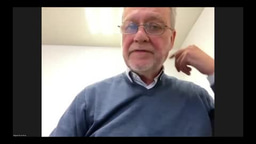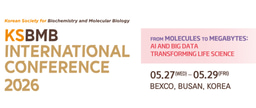FEBS Excellence Awardee spotlight: Ilaria Elia

Ilaria Elia is an Assistant Professor at KU Leuven in Belgium. She conducted her PhD studies on cancer and metabolism at KU Leuven and pursued a postdoc on immunometabolism at Harvard Medical School in Boston, USA. Since September 2021, she has been leading an independent research group focusing on the metabolic cross-talk between cancer cells and immune cells in the tumor microenvironment. In 2022, Ilaria was honored with a FEBS Excellence Award (funds for equipment/consumables for early-career group leaders).
What is your current research focus?
My current research focuses on understanding how metabolism influences and is affected by the interaction of immune cells and tumor cells within the tumor microenvironment. The ultimate goal is to discover metabolic strategies that can improve the effectiveness of cancer treatment. One exciting project I am working on is supported by the FEBS Excellence Award. We are examining the role of the immune system in the multi-step process of cancer metastasis, which is responsible for most cancer-related deaths. While previous studies have suggested that CD8+ T cells may play a role in impeding dormant tumor cells from spreading, the metabolic regulation of these processes is not well understood. By investigating the primary carbon sources and metabolic pathways involved, we aim to identify new ways to manipulate the metabolism of CD8+ T cells and improve the effectiveness of immunotherapy.
What drew you to work in this area?
My interest in cancer metabolism was first sparked during my PhD studies, where I worked in the laboratory of Sarah-Maria Fendt (VIB, KU Leuven). There, I studied the relationship between metabolic reprogramming and the metastatic nutrient microenvironment and identified potential targets for treating lung metastasis. This work led me to consider the impact of the nutrient microenvironment on the neighboring immune cells, which ultimately motivated me to join the lab of Marcia Haigis and Arlene Sharpe at Harvard Medical School as a postdoctoral fellow. At that time, the field of immunometabolism was rapidly emerging, and I was fascinated by the new discoveries being made by leading scientists around the world. Through collaborations with experts in both fields, I became increasingly interested in the study of cancer immunometabolism as a means of identifying novel therapeutic targets for the treatment of cancer. I believe that the study of cancer immunometabolism holds tremendous promise for the development of new and effective cancer therapies, and I am excited to continue contributing to this field through my research.
How has time spent doing research abroad influenced your scientific career?
Spending time abroad has been a crucial factor in shaping my scientific career. It's not just about being in a new environment but also about immersing yourself in a different culture and meeting new colleagues and collaborators. As a result, you are exposed to other research questions and ideas that are often distinct from those you are used to. Moreover, being able to collaborate with researchers from different backgrounds and cultures provides a new level of creativity and innovation that cannot be achieved in a single lab or institution. This exposure allows you to think about science from a different perspective, uniquely expanding your knowledge and expertise. Being abroad also means dealing with different rules and regulations, which can be challenging but also rewarding. You learn to navigate different systems, which ultimately enhances your problem-solving skills and makes you more adaptable. Overall, I believe that the time I spent abroad has been a valuable experience that has enriched my scientific career and will hopefully allow me to make unique contributions to the field.
What would be your advice to PhD students and postdocs who would like to eventually start their own lab?
In my experience, making the right career choices during your training is crucial for achieving success in academia. It's essential to combine your expertise with new research topics to develop a unique set of skills that will make you stand out as a scientist. Surrounding yourself with outstanding colleagues in a stimulating scientific environment is also critical. Answering new research questions and venturing out of your comfort zone is an excellent way to challenge yourself and grow as a scientist. To achieve this, it is important to seek out diverse training opportunities that can broaden your expertise and give you a well-rounded perspective on your field of study. Additionally, networking and establishing collaborations with researchers in your field can be immensely valuable, as it can open up new opportunities for research and help you build a network of colleagues and mentors. Finally, I believe it's crucial to keep an eye out for opportunities and be ready to seize them when they arise. Sometimes, the right position may present itself unexpectedly, and it's essential to be prepared to take advantage of it, as there may not be a second chance. Above all, it is important to remain passionate and committed to your research goals, even in the face of challenges or setbacks.
How have you found being a group leader?
As a group leader, I find it immensely fulfilling to be able to pursue research questions that interest me and discuss these findings with my group and at research seminars or conferences. Mentoring young scientists is another aspect of this job that I particularly enjoy. Being a point of reference for my team and helping them advance in their careers is very rewarding. However, time management can be challenging for a group leader. Balancing various tasks and responsibilities can make finding enough time for research and my team difficult. However, young scientists, especially PhD students, often require close supervision to develop their independence and move their scientific projects forward. Despite the challenges, I am thoroughly enjoying my role as a group leader, and I hope to gain even more experience as I continue in my career.
Top image of post: from National Cancer Institute / Univ. of Maryland Greenebaum Cancer Center (by Stuart S. Martin)





Join the FEBS Network today
Joining the FEBS Network’s molecular life sciences community enables you to access special content on the site, present your profile, 'follow' contributors, 'comment' on and 'like' content, post your own content, and set up a tailored email digest for updates.